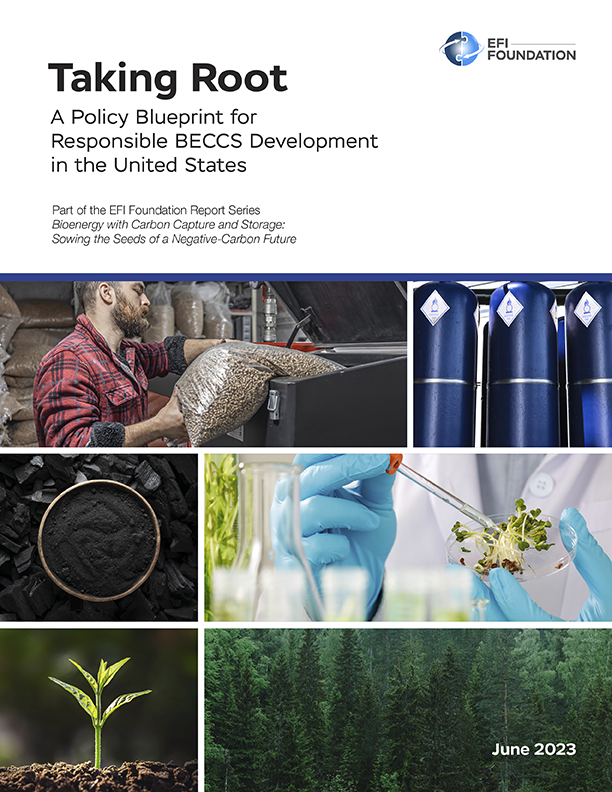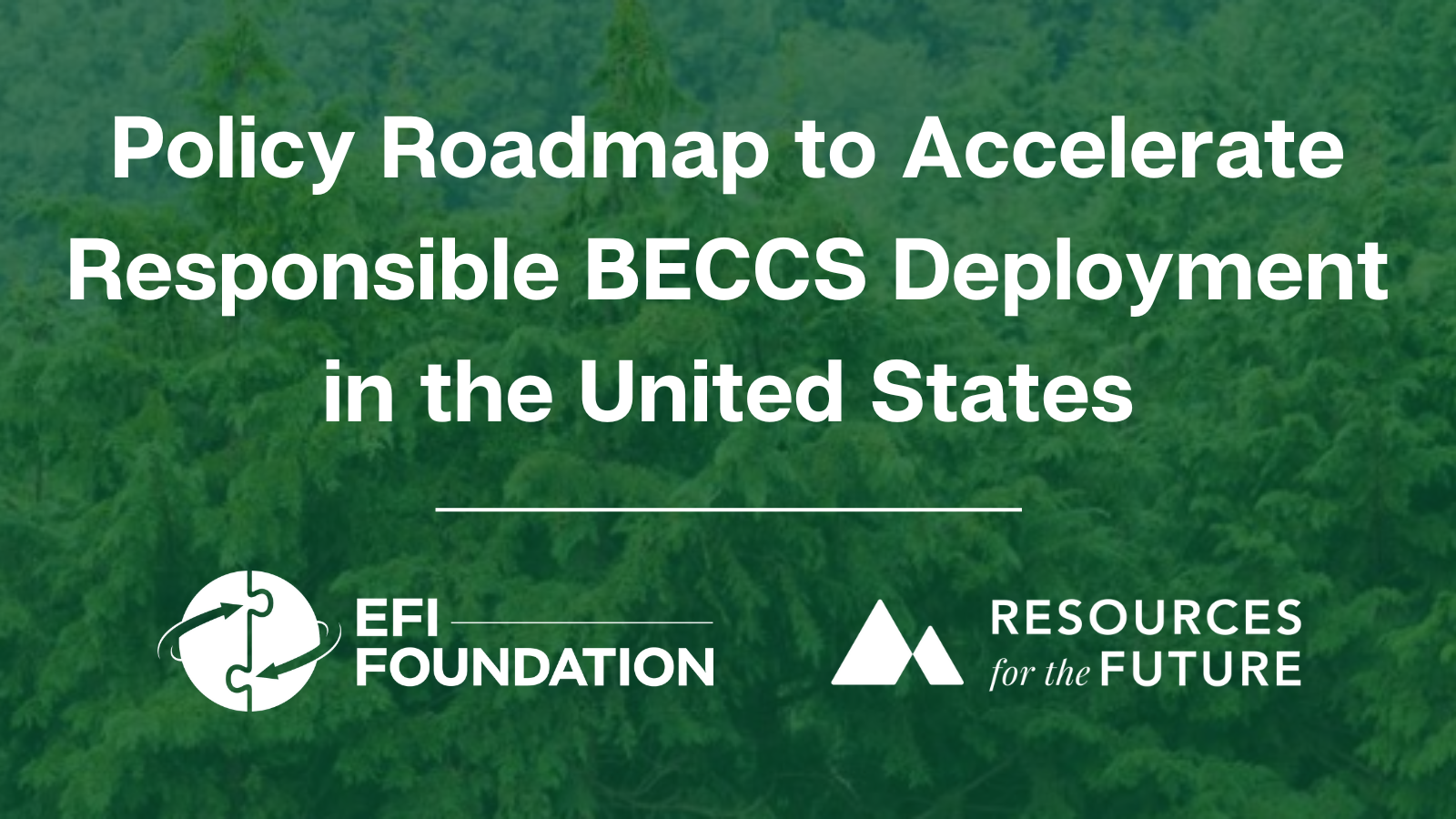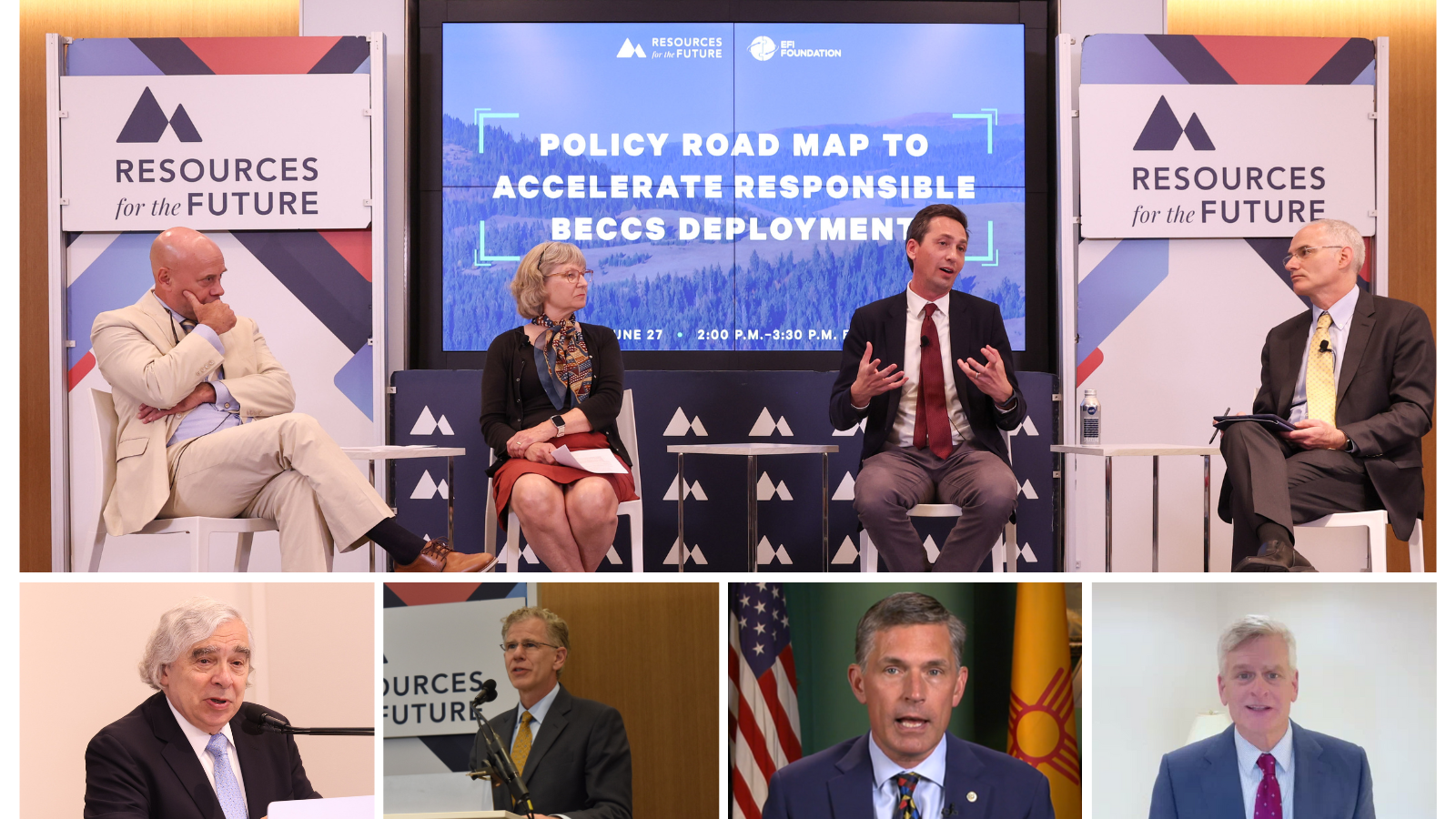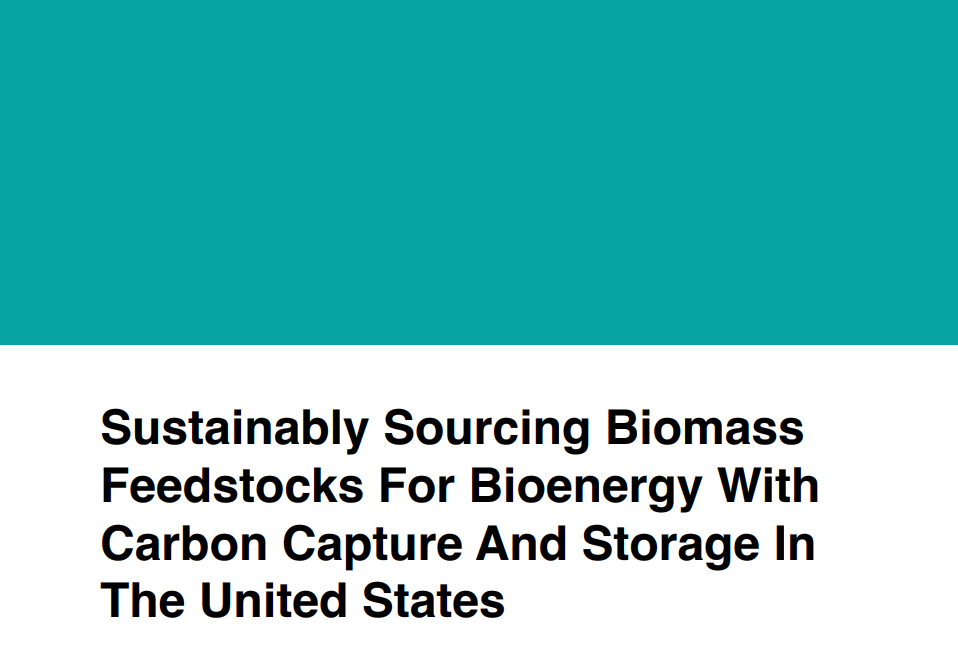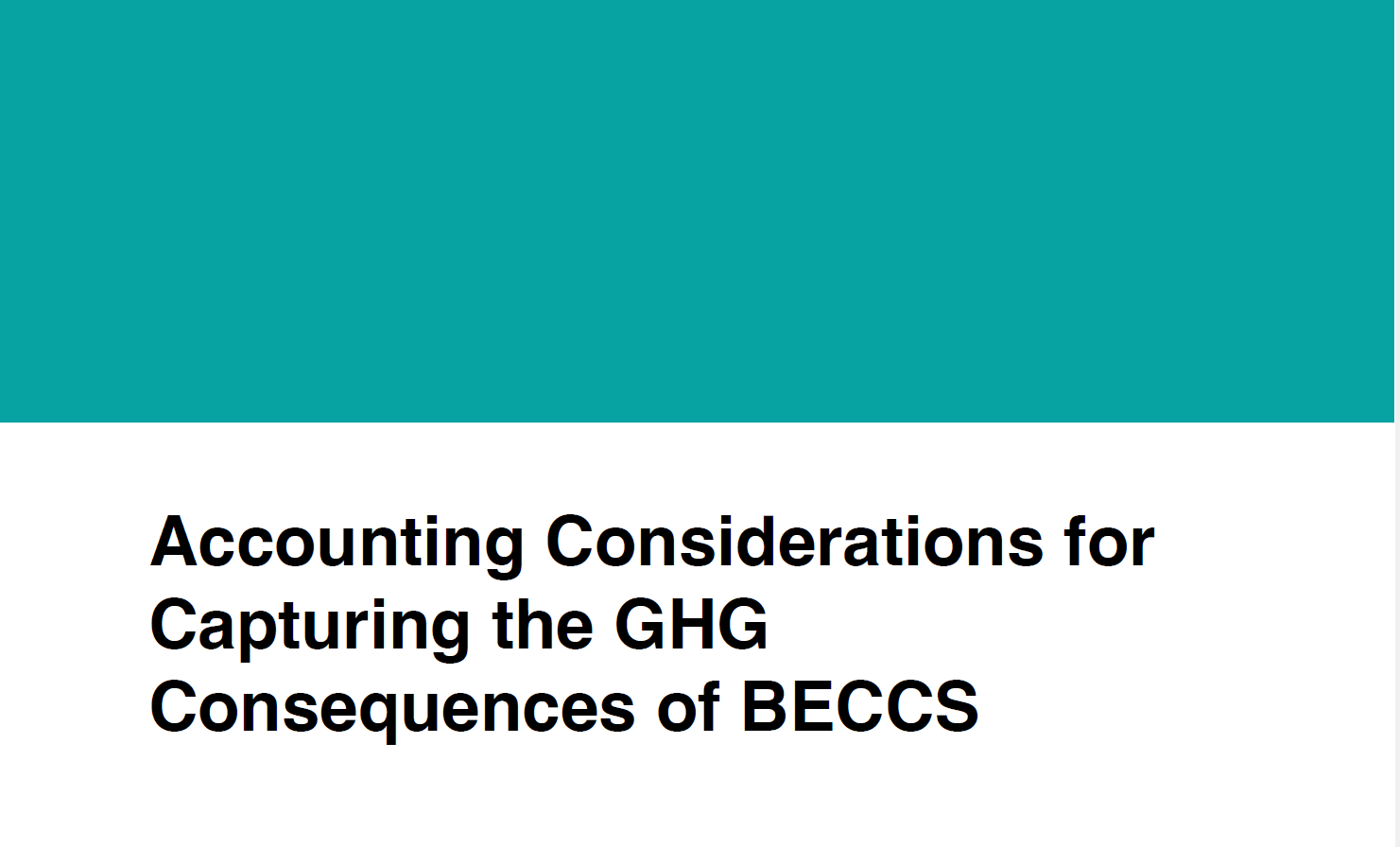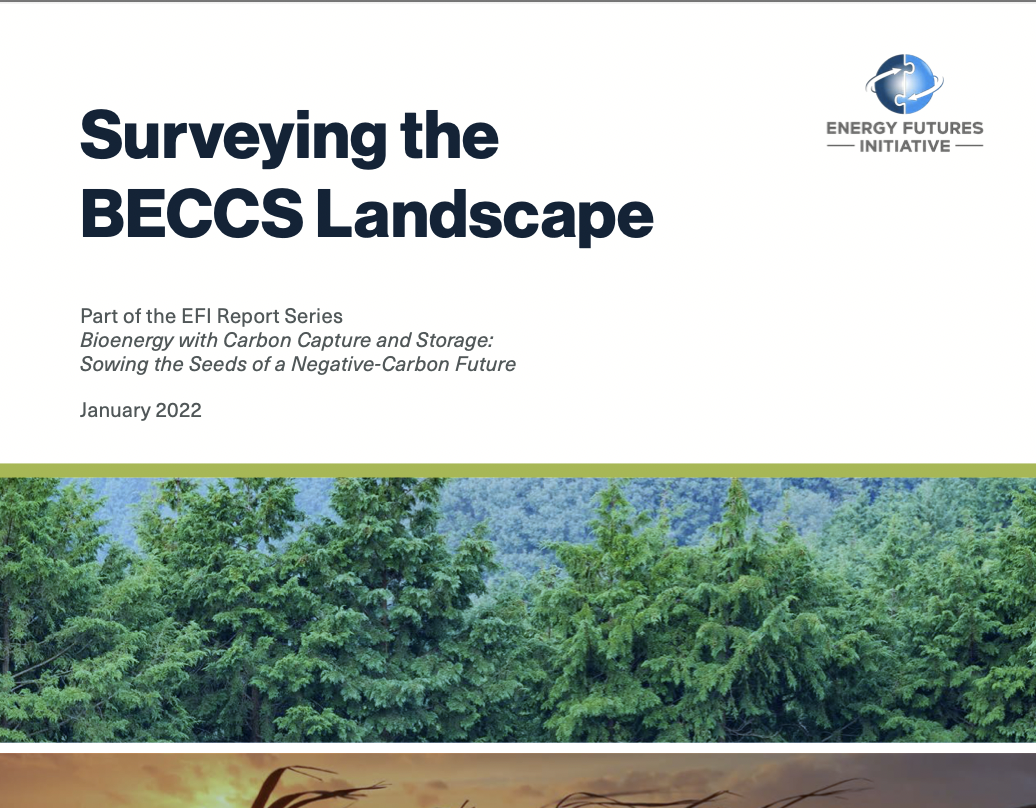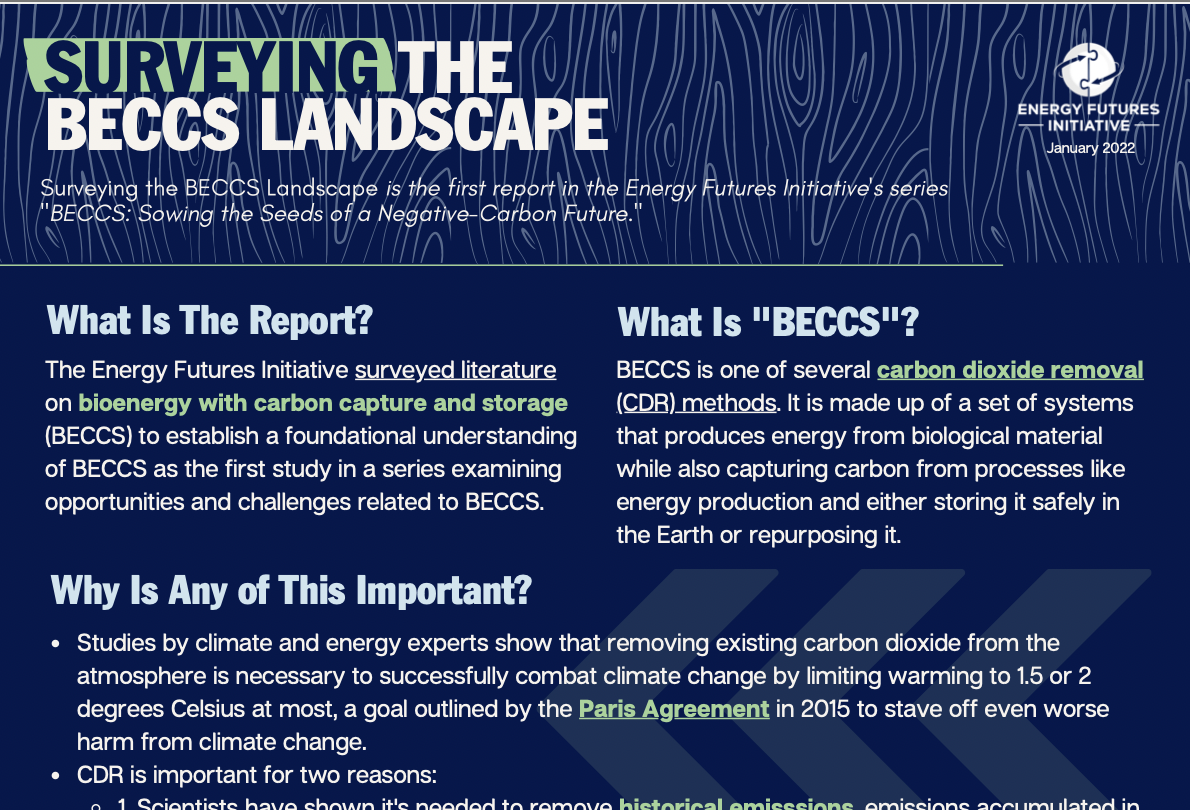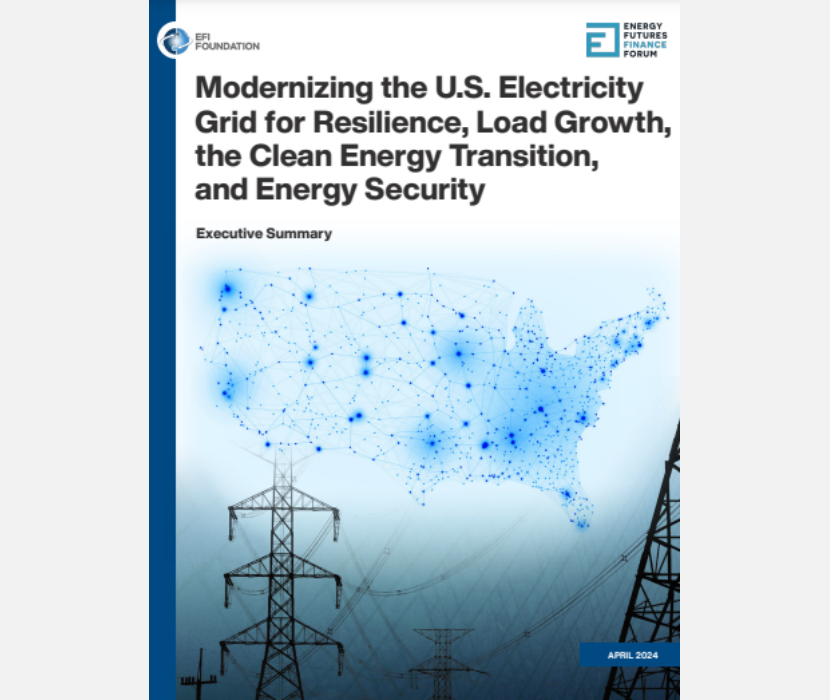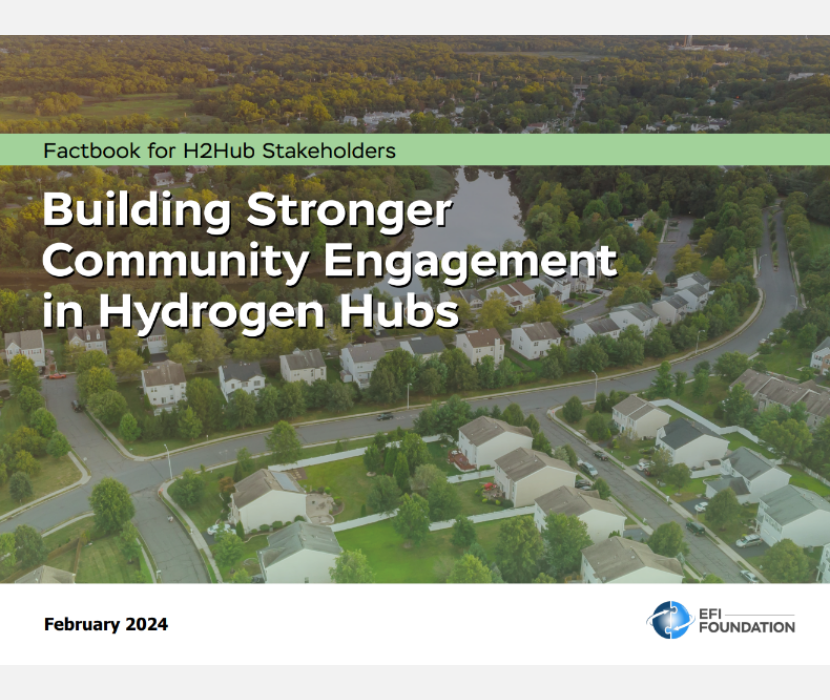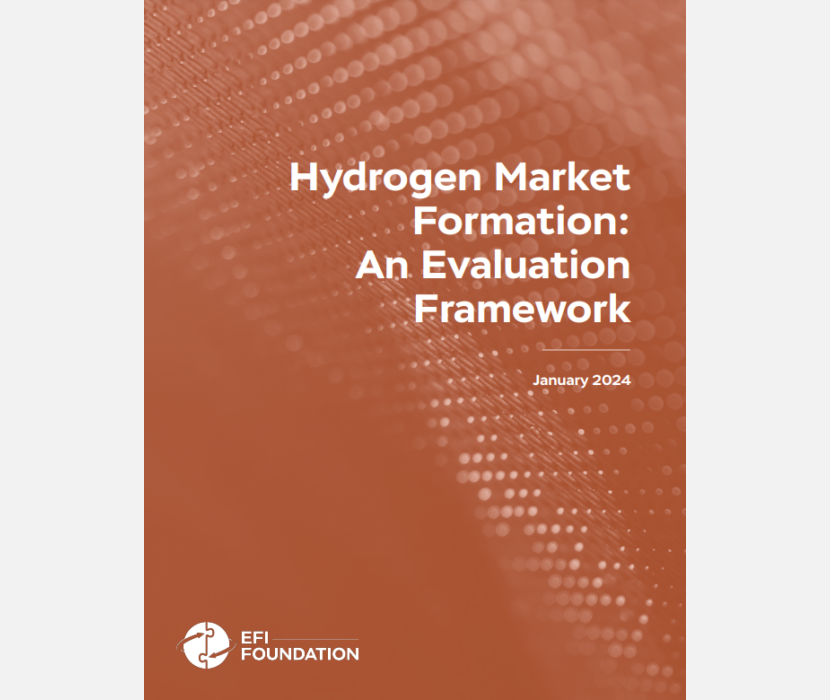Taking Root: A Policy Blueprint for Responsible BECCS Development in the United States – Summary Report (June 2023) synthesizes the final policy findings and recommendations from the Energy Futures Initiative/EFI Foundation multi-year study entitled Bioenergy with Carbon Capture and Storage: Sowing the Seeds of a Negative-Carbon Future. The wide-ranging scope of bioenergy with carbon capture and storage (BECCS) intersects with federal policies for sustainable agriculture and forestry, clean energy, and climate change. This summary report details a holistic federal policy blueprint to accelerate responsible BECCS deployment in the United States.
Bioenergy in the United States is currently the largest single source of renewable energy and a major component of domestic energy production through ethanol used in transportation. Combining bioenergy with carbon capture, however, is in the early stages of deployment. Various analyses identify a large role for BECCS to provide net-negative carbon dioxide (CO2) emissions as part of a portfolio of measures to achieve net-zero greenhouse gas emissions by midcentury. BECCS deployment in parallel with greenhouse gas mitigation measures can help achieve climate goals more quickly, as well as counterbalance residual emissions from difficult-to-decarbonize sectors of the economy. The climate change effects of BECCS involve complex interactions among land, energy, and industrial systems and require careful assessment to inform policymaking.
Recent federal legislation, including the Energy Act of 2020, the Bipartisan Infrastructure Law (BIL), the CHIPS and Science Act, and the Inflation Reduction Act (IRA), provide new incentives for climate and clean energy that assist with accelerated BECCS deployment. The 2018 Farm Bill also supports programs for sustainable agriculture. While these measures provide valuable incentives, they address the full scope of BECCS deployment in a piecemeal or indirect manner.
To help BECCS realize its potential, the report recommends a holistic policy framework of eight major elements organized into three broad themes: policies to expand and accelerate BECCS deployment; leveraging the social, economic, and environmental co-benefits of BECCS; and rules of the road to promote responsible development. The eight elements are listed below.
- National Policy Planning: Setting a national target for BECCS—focusing on both clean energy production and carbon dioxide removal—could be an important step in marshaling the public and private resources needed to advance BECCS deployment.
- Financial Incentives: Additional federal incentives to complement the Section 45Q carbon oxide sequestration tax credit should apply to BECCS facilities with a variety of feedstocks and conversion processes. Among other things, the federal government should initiate a demonstration program for federal CDR purchases that include BECCS.
- 2023 Farm Bill and Sustainable Feedstocks: The 2023 Farm Bill presents an important window of opportunity to accelerate BECCS deployment, especially for feedstock supply adequacy and sustainability. Four separate titles in the Farm Bill—Energy, Conservation, Research and Extension, and Forestry—will have the largest impact on BECCS.
- Wildfire Mitigation: The contribution of BECCS in leveraging wildfire mitigation should be incorporated into federal forest and wildfire policies and programs. Policies should be re-evaluated that currently limit how biomass from federal lands can be used and that restrict its eligibility for clean energy credits.
- Rural and Transition Community Development: BECCS could provide new opportunities for rural areas to participate in the low-carbon transition and provide an economic engine for communities impacted by economic dislocation.
- Greenhouse Gas Accounting: Incorporating BECCS into climate and clean energy policy planning, emissions inventories, federal incentives, and voluntary carbon markets requires accounting guidelines that are comprehensive, consistent, credible, transparent, and science-based.
- Environmental Justice and Community Trust: Successfully accelerating the pace of BECCS deployment will require increased attention to community engagement to address community and environmental justice concerns.
- Innovation: BECCS is built on established technologies, but there is a big opportunity for innovation and advancement in BECCS technologies through targeted research, development, and demonstration programs that are effectively coordinated across federal agencies.
BECCS can fill important needs for decarbonization through carbon removal and clean energy production, provide an economic impetus in rural and transition communities, and further establish the United States as a global leader in the burgeoning bioeconomy. If done with the proper safeguards to ensure sustainability and avoid unintended consequences, accelerating BECCS deployment can promote decarbonization, energy security, economic growth, and job creation.
Supplemental Material
Related Content
(Share this post with others.)


